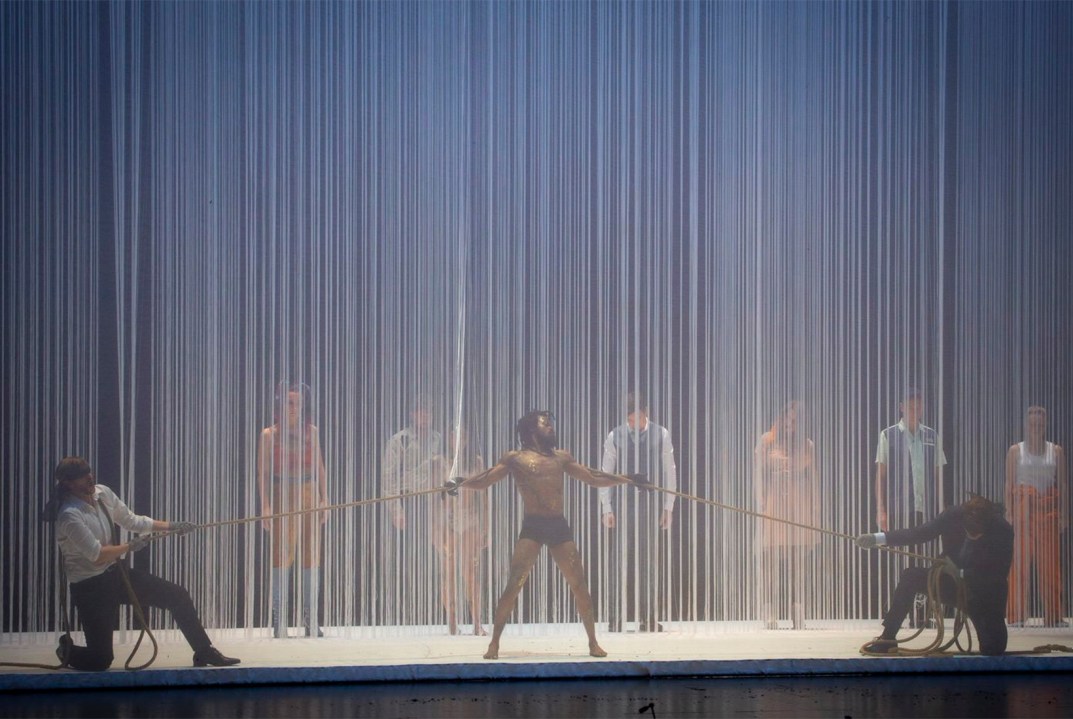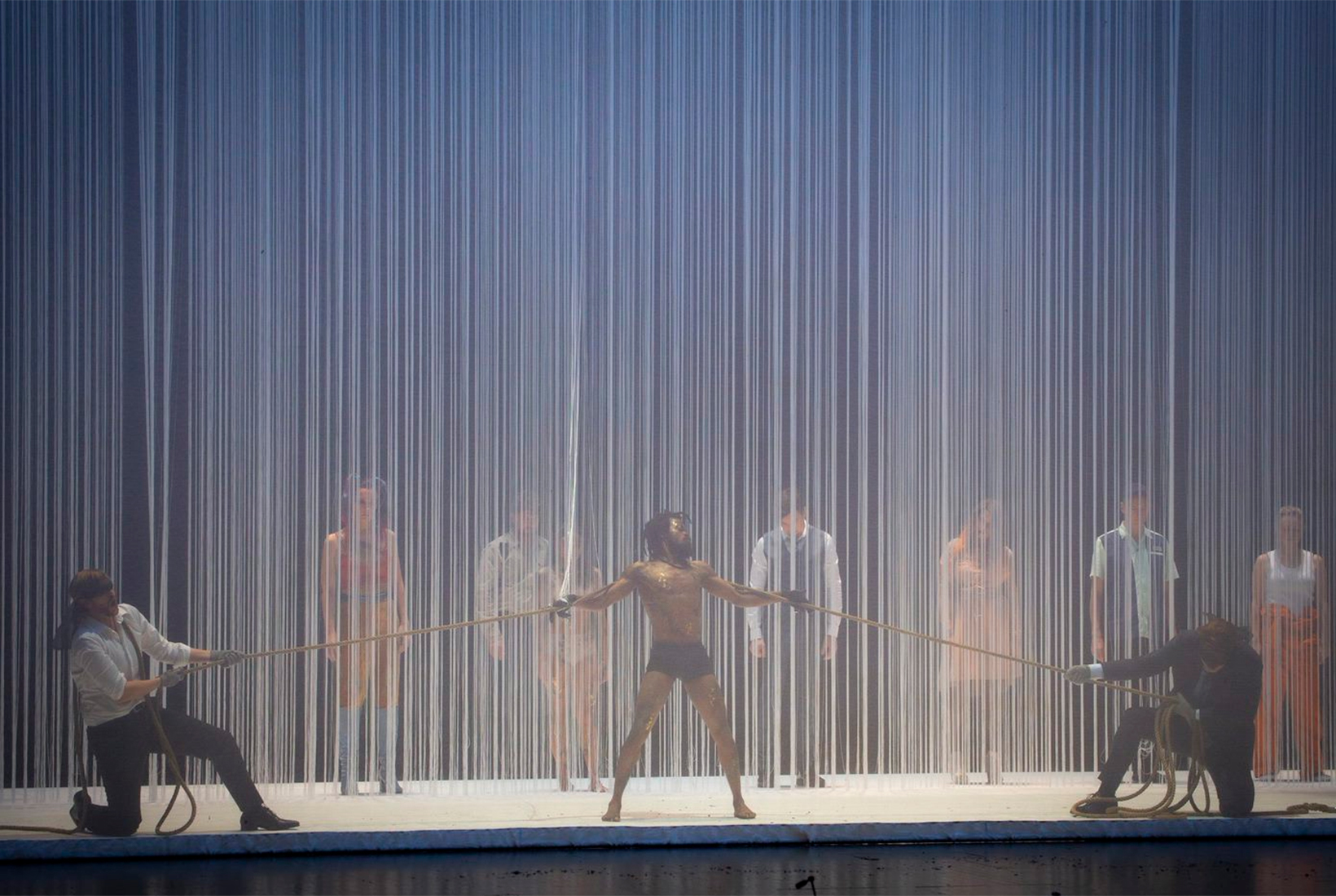I don’t say this lightly, but after 20 years of opera-going, Luigi Rossi’s Il Palazzo incantato might just be the most baffling opera I’ve ever seen. And I’ve seen Stockhausen’s Licht.
It starts with 27 named roles and originally featured no fewer than ten castrati among its cross-dressing, all-male cast. This operatic game of Twister was premièred in Rome in 1642, where it originally played out over seven scintillating hours and nearly 3,000 verses of poetry written, incidentally, by the man who would go on to become Pope Clement IX.
A plot based on Ariosto’s sorcerers-and-Saracens epic Orlando Furioso brings together every character you’ve heard of (and lots that you haven’t) including knights Orlando and Ruggiero, seductress Angelica and abandoned fiancée Bradamante, and lets them all loose in the wizard Atlante’s magical labyrinth — a baroque Hotel California where shape-shifting comes as standard and partner-swapping is enthusiastically encouraged. Try and follow the tangle at your peril.
Waves of music ebb and flow without ever definitely arriving; it’s relentlessly pleasurable
The thing is, the music is astonishing — all the more so because, until a few months ago, no one had heard a note of it for nearly 400 years. Rossi himself, if not exactly a household name, has a pretty good foothold in the repertoire thanks to his second opera Orfeo (staged by the Royal Opera in 2015) which has a quiet, cultish sort of status among the kind of enthusiasts who share obscure opera recommendations instead of racing tips. But Rossi’s first opera has long been listed as ‘lost’ in catalogues, just another musical might-have-been.
Then Argentinian conductor Leonardo Garcia Alarcon tracked it down to the Vatican Library, cut it down to a more manageable size and staged it for the first time since its première in Dijon in December — a rare good-news story in the middle of a pandemic. That production is now up online and it’s disorienting and surprising and very revealing.
The first shock comes when the camera pans out to reveal the orchestra pit. When we think about 17th-century opera it’s of Monteverdi and Cavalli — Venice’s golden boys. But Venice’s was a commercial tradition of opera driven by the bottom line. That may have kept plots spicy but it also kept orchestras and spectacle small. Over in Rome things were very different. Private patronage (Cardinals Mazarin and Richelieu were both Rossi’s patrons) led to a much more lavish approach.
The 40-strong band for Il Palazzo is typical of its time, but sounds remarkable today. Imagine Raymond Leppard’s lavish, gloriously anachronistic reconstructions — Monteverdi meets Mantovani — but this time they’re the real deal. Fancy decking out your villain in a whole brass section of armour? No problem. Need a mantle of strings 12-deep to drape around your seductive heroine? Here you go.
And then there are the songs — because that’s what they are. There are no formal arias here, just an endless drifting, kaleidoscopic arioso that crystallises into moments so beautiful it hurts. Without an orchestral introduction to signpost that a Big Tune is coming they creep up on you and disappear just as you’re dying for them to go on. Waves of music ebb and flow without ever definitely arriving; it’s relentlessly pleasurable — tantric opera.
Director Fabrice Murgia does exactly what you’d expect with the piece, and sets it in a modern hotel-cum-detention centre-cum-airport. It’s uncontroversially anonymous, the inevitable video projections amplifying an absurdly good-looking cast in the traditional opera uniform of business suits, jumpsuits and lingerie. The acting is surprisingly plausible — calibrated for film, thanks to an empty auditorium — but it’s really all about the music. The singing is uniformly outstanding, but still comes in second to Alarcon’s magnificent band.
If it’s Lenten penance rather than pleasure you’re after, then I can recommend Oxford Lieder’s song weekend Winter Into Spring (still available to stream). Presumably Sunday’s ‘Spring’ was gentler, because Saturday’s ‘Winter’ was worth putting your therapist on speed-dial.
First tenor Joshua Ellicott and pianist Anna Tilbrook wrung us with Britten’s Winter Words — a cycle of Hardy settings bookended by some of the composer’s bleakest vignettes — characters caught in a cycle of missed connections, isolation, exclusion. Ellicott whittles his voice down to a Pearsian point for these sketched miniatures, his line so spare that even the slightest softening — the melisma that halos the seraphim in ‘The Choirmaster’s Burial’, the floated opening to ‘A Time there Was’ — tells keenly.
Then veteran German baritone Dietrich Henschel gave us a Winterreise that offered no quarter from the musical storm. Back in 2012 Henschel released a pretty definitive recording of Schubert’s cycle on disc. Nearly a decade on and his wanderer is bleaker still: maddened to the point of hallucination, fury, suicide. The voice, never especially beautiful, is now often harsh, the delivery as much un-singing as vocal acting. The effect is brutal, particularly as Sholto Kynoch’s piano refuses to be drawn into madness, allowing a greater and greater gulf to emerge between its Biedermeier poise and the singer’s horrifying, masterly collapse.







Comments